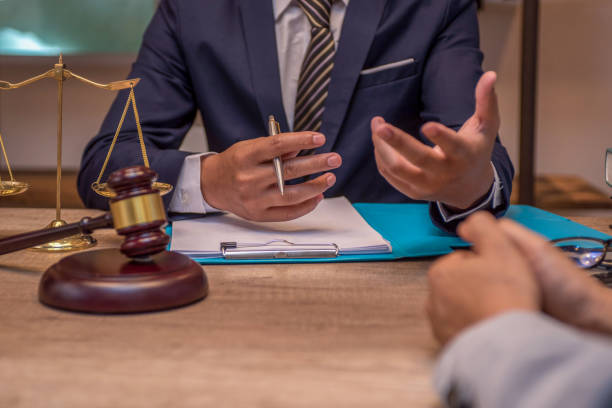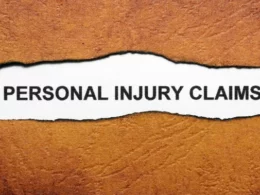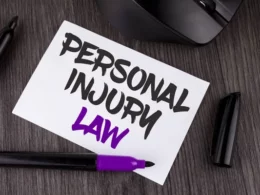Personal injury claims can be a complex and stressful process, and the cost of legal representation can be a significant concern for many people. If you’ve suffered an injury due to someone else’s negligence, you may be wondering if you can get legal aid to help cover the costs of pursuing your claim.
This is a common question, and the answer is not always straightforward. Many people worry that they won’t be able to afford the legal fees associated with a personal injury claim, or that they won’t be eligible for legal aid.
However, with the right information and guidance, it is possible to navigate the legal aid system and get the help you need.
In this article, we’ll explain how legal aid works for personal injury claims, and provide you with the information you need to make informed decisions about your options. Read on to get the best answers.
Can You Get Legal Aid for Personal Injury Claims?
Yes, it is possible to get legal aid for personal injury claims. Legal aid is available to those who meet certain eligibility criteria, such as having a low income or being a victim of domestic violence.
Notwithstanding, the availability of legal aid for personal injury claims can vary depending on the jurisdiction and the specific circumstances of the case. It’s important to understand the requirements and limitations of legal aid in your area before pursuing a personal injury claim.
In some cases, you may be able to find free or low-cost legal assistance through other resources, such as legal clinics or pro bono programs.
Legal Aid for Personal Injury Claims
If you’ve been injured in an accident that wasn’t your fault, you may be wondering if you can get legal aid to help you pursue a personal injury claim. In this section, we’ll go over what legal aid is, who is eligible for it, and how to apply.
What is Legal Aid?
Legal aid is a government-funded program that provides legal assistance to people who cannot afford to pay for a lawyer. It is designed to ensure that everyone has access to justice, regardless of their financial situation. Legal aid can cover a wide range of legal issues, including personal injury claims.
Who is Eligible for Legal Aid?
To be eligible for legal aid, you must meet certain criteria, including:
- Your income and assets must be below a certain level.
- Your case must have a reasonable chance of success.
- Your case must be in a category of cases that legal aid covers.
In the case of personal injury claims, legal aid is only available in certain circumstances. For example, if you were injured as a result of medical negligence, you may be eligible for legal aid. However, if you were injured in a car accident, legal aid is generally not available.
How to Apply for Legal Aid
If you think you may be eligible for legal aid for your personal injury claim, you can apply through your local legal aid office. You will need to provide information about your income and assets, as well as details about your case. The legal aid office will then assess your application and let you know if you are eligible.
It’s important to note that even if you are eligible for legal aid, it may not cover all of the costs associated with your case. You may still need to pay some fees and expenses, such as court fees and medical reports.
In summary, legal aid may be available for personal injury claims in certain circumstances. If you think you may be eligible, you can apply through your local legal aid office. However, it’s important to be aware that legal aid may not cover all of the costs associated with your case.
Personal Injury Claims and Compensation
If you have suffered an injury due to someone else’s negligence, you may be eligible for compensation through a personal injury claim. In this section, we will discuss the types of personal injury claims, compensation for personal injury claims, and factors affecting compensation.
Types of Personal Injury Claims
Personal injury claims can arise from a variety of incidents, such as car accidents, slip and falls, medical malpractice, and workplace accidents. The most common types of personal injury claims include:
- Motor vehicle accidents
- Slip and fall accidents
- Medical malpractice
- Workplace accidents
- Product liability
Compensation for Personal Injury Claims
Compensation for personal injury claims typically includes two types of damages: economic and non-economic. Economic damages are tangible losses such as medical expenses, property damage, and lost wages. Non-economic damages are intangible losses such as pain and suffering, emotional distress, and loss of enjoyment of life.
The amount of compensation you can receive for your personal injury claim depends on the severity of your injuries, the extent of your financial losses, and the degree of fault of the other party. In some cases, the court may also award punitive damages to punish the defendant for their reckless or intentional behavior.
Factors Affecting Compensation
Several factors can affect the amount of compensation you receive for your personal injury claim. These include:
- The severity of your injuries
- The extent of your financial losses
- The degree of fault of the other party
- The quality of your legal representation
- The jurisdiction where your case is heard.
It’s important to note that compensation for personal injury claims can vary widely depending on the circumstances of your case. Consulting with an experienced personal injury attorney can help you understand your legal rights and options for pursuing compensation.
Hiring a Personal Injury Attorney
If you have been involved in an accident or suffered an injury due to someone else’s negligence, you may be wondering if you need to hire a personal injury attorney. While it is not always necessary to hire an attorney for a personal injury case, there are certain situations where it can be beneficial to have legal representation.
When to Hire a Personal Injury Attorney
You should consider hiring a personal injury attorney if:
- You have suffered a severe injury that requires extensive medical treatment or results in long-term disability.
- The insurance company is denying your claim or offering a low settlement that does not cover your medical expenses or other damages.
- The other party is disputing liability for the accident.
- The case is complex and requires legal expertise.
- You are not comfortable negotiating with insurance companies or handling legal matters on your own.
How to Choose the Best Personal Injury Lawyer
When choosing a personal injury lawyer, it is important to do your research and choose someone who has experience handling cases similar to yours. Here are some tips for choosing the best personal injury lawyer:
- Look for a lawyer who specializes in personal injury law.
- Check their experience and success rate with cases similar to yours.
- Read reviews and testimonials from past clients.
- Schedule a consultation to discuss your case and get a feel for their communication style and approach to your case.
Legal Fees and Costs
Most personal injury attorneys work on a contingency fee basis, which means they only get paid if you win your case. The fee is typically a percentage of the settlement or judgment amount. It is important to discuss legal fees and costs with your attorney before hiring them to ensure you understand their fee structure and there are no surprises.
In addition to attorney fees, there may be other costs associated with your case, such as filing fees, expert witness fees, and medical record fees. Your attorney can explain these costs and help you understand what to expect.
Overall, hiring a personal injury attorney can be beneficial in certain situations. It is important to choose the right attorney for your case and understand the legal fees and costs associated with hiring legal representation.
Legal Aid and Pro Bono Programs
If you have been injured due to someone else’s negligence, you may be wondering if you can get legal aid or assistance with your personal injury claim. There are several options available to you, including pro bono programs, volunteer lawyers, free legal answers, and low-cost legal services.
Pro Bono Programs for Personal Injury Claims
Pro bono programs are an excellent resource for individuals who cannot afford legal representation. These programs are typically run by local bar associations or legal aid organizations and offer free legal services to low-income individuals. Some pro bono programs specifically focus on personal injury claims.
To find a pro bono program in your area, you can contact your local bar association or legal aid organization. They can provide you with a list of available programs and help you determine if you qualify for their services.
Volunteer Lawyers for Personal Injury Claims
Another option for individuals seeking legal assistance for personal injury claims is to work with a volunteer lawyer. These lawyers donate their time and expertise to help those in need, and they may be able to provide you with the legal guidance you need to pursue your claim.
To find a volunteer lawyer, you can contact your local bar association or legal aid organization. They can connect you with lawyers in your area who are willing to take on pro bono cases.
Free Legal Answers
Free legal answers are another resource available to individuals seeking legal assistance for personal injury claims. These services typically involve submitting your legal question online, and a volunteer lawyer will provide you with a response.
To access free legal answers, you can visit websites like the American Bar Association’s Free Legal Answers or your state’s legal aid organization’s website.
Low-Cost Legal Services
If you do not qualify for pro bono programs or free legal answers, there are still options available to you. Many lawyers offer low-cost legal services to individuals who cannot afford their regular rates.
To find a lawyer who offers low-cost legal services, you can contact your local bar association or legal aid organization. They can provide you with a list of lawyers in your area who offer reduced rates.
In conclusion, there are several options available to individuals seeking legal assistance for personal injury claims. Whether you qualify for pro bono programs, work with a volunteer lawyer, access free legal answers, or seek out low-cost legal services, there is help available to you.
Going to Court for Personal Injury Claims
If you have suffered a personal injury due to someone else’s negligence, you may be wondering if you can get legal aid to help you with your case. In some cases, legal aid may be available to help you pay for legal representation or other expenses. Here are some things you should know about going to court for personal injury claims.
Filing a Lawsuit for Personal Injury Claims
If you decide to file a lawsuit for your personal injury claim, you will need to follow the proper legal procedures. This can include filling out paperwork, gathering evidence, and presenting your case in court. It is important to have legal representation to help guide you through this process and ensure that your rights are protected.
Settling Personal Injury Claims Out of Court
In some cases, you may be able to settle your personal injury claim out of court. This can be done through negotiations with the other party or their insurance company. If you are able to reach an agreement, you can avoid the time and expense of going to court. However, it is important to have legal representation to help ensure that any settlement is fair and covers all of your expenses.
Contingency Fees and Legal Representation
If you are unable to afford legal representation for your personal injury claim, you may be able to find a lawyer who works on a contingency fee basis. This means that the lawyer will only be paid if you win your case or reach a settlement. If you do win, the lawyer will take a percentage of the compensation you receive. This can be a good option for those who cannot afford legal fees upfront.
Going to court for a personal injury claim can be a complex and stressful process. However, with the right legal representation and knowledge of the legal system, you can ensure that your rights are protected and that you receive the compensation you deserve.
Expert Advice and Medical Treatment for Personal Injury Claims
If you have suffered a personal injury, obtaining expert advice and medical treatment is crucial to ensure that you receive the compensation you deserve. In this section, we will discuss the different aspects of expert advice and medical treatment for personal injury claims.
Medical Treatment for Personal Injury Claims
Medical treatment is essential to ensure that you recover from your injuries and to provide evidence of the extent of your injuries. You should seek medical attention as soon as possible after your injury to document your injuries and receive treatment. Keep all medical bills and records as they will be necessary to prove the extent of your injuries and the costs associated with your medical treatment.
Expert Advice and Testimony for Personal Injury Claims
Expert advice and testimony can be invaluable in a personal injury claim. Experts such as doctors, engineers, and accident reconstructionists can provide testimony to support your claim and to demonstrate the extent of your injuries. It is important to choose the right expert for your case and to ensure that their testimony is relevant and reliable.
Insurance Policies and Liability for Personal Injury Claims
Insurance policies and liability are also important considerations in personal injury claims. The defendant’s insurance policy may cover the costs of your medical treatment and compensation for your injuries. Liability is determined by the defendant’s negligence or fault, and the extent of their liability will depend on the circumstances of your case.
In summary, obtaining expert advice and medical treatment is crucial in a personal injury claim. Seek medical attention as soon as possible after your injury and keep all medical bills and records. Choose the right expert for your case and ensure that their testimony is relevant and reliable. Consider the defendant’s insurance policy and liability when pursuing compensation for your injuries.
Conclusion
In conclusion, personal injury claims can be complex and challenging to navigate, especially if you don’t have the financial resources to hire an attorney. However, legal aid may be available to help you pursue your case.
It’s important to note that legal aid is typically reserved for individuals who meet certain income and asset requirements. Additionally, legal aid organizations may only take on cases that they believe have a high likelihood of success.
If you’re considering pursuing a personal injury claim and believe you may be eligible for legal aid, it’s important to do your research and find an organization that can provide you with the assistance you need. Some resources to consider include your state bar association, legal aid clinics, and nonprofit organizations that specialize in providing legal services to low-income individuals.
Remember, pursuing a personal injury claim can be a time-consuming and emotionally draining process, but with the right support and resources, you can increase your chances of achieving a positive outcome. Don’t hesitate to reach out for help if you need it.
YOU SHOULD ALSO READ:
- Is Personal Injury Court Real or Fake?
- Is Personal Injury Protection Necessary?
- Broken Shoulder Injury Claim: How to File and Win
- How Successful Are Personal Injury Claims? A Comprehensive Analysis
- Claiming Accident After 3 Years: Is It Possible?












